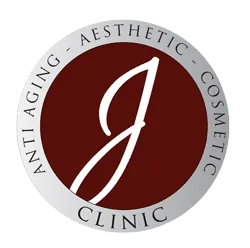Acne, a ubiquitous skin condition affecting individuals of all ages, can be a persistent source of frustration and self-consciousness. As the quest for clearer skin continues, the debate over the most effective treatment approach—topical vs. oral—remains a focal point of discussion among dermatologists and skincare enthusiasts alike. In this comprehensive exploration, we embark on a journey to unravel the complexities of acne treatment, examining the efficacy, mechanisms of action, potential side effects, and nuanced considerations associated with both topical and oral therapies. By gaining a deeper understanding of these treatment modalities, individuals can make informed decisions to reclaim control over their skin health and confidence.
Understanding Topical Acne Treatments
Topical acne treatments represent the frontline defense against acne, comprising a diverse array of formulations designed to be applied directly to the skin’s surface. These formulations often feature active ingredients such as benzoyl peroxide, salicylic acid, retinoids (e.g., tretinoin, adapalene), or antibiotics (e.g., clindamycin, erythromycin). Each ingredient targets specific aspects of acne pathogenesis, including inflammation, follicular hype keratinization, and bacterial proliferation, to promote clearer, blemish-free skin.
Delving Deeper: The Pros and Cons of Topical Treatments
Pros:
Convenience: Topical treatments offer ease of application, allowing individuals to target specific areas of concern with precision.
Direct Action: By acting locally on the skin’s surface, topical treatments can effectively address superficial lesions and prevent new blemishes from forming.
Minimal Systemic Effects: Compared to oral medications, topical treatments typically carry a lower risk of systemic side effects, making them suitable for long-term use.
Cons:
Skin Irritation: Some topical treatments may cause skin irritation, dryness, or peeling, particularly during the initial stages of treatment.
Time to Efficacy: Certain formulations may require weeks to months of consistent use before noticeable improvements in acne severity are observed.
Limited Penetration: Topical treatments may have limited penetration into deeper layers of the skin, potentially limiting their efficacy for treating more severe forms of acne.
Understanding Oral Acne Treatments
In contrast to their topical counterparts, oral acne treatments exert their therapeutic effects systemically, targeting acne from within the body. These treatments encompass a diverse range of medications, including antibiotics (e.g., doxycycline, minocycline), hormonal therapies (e.g., oral contraceptives, spironolactone), and isotretinoin (commonly known as Accutane). By addressing underlying factors such as inflammation, hormonal imbalances, and sebaceous gland hyperactivity, oral medications offer a comprehensive approach to acne management, particularly for moderate to severe cases.
Exploring Nuances: The Pros and Cons of Oral Treatments
Pros:
Potent Systemic Effects: Oral medications can exert potent systemic effects, targeting multiple pathogenic pathways implicated in acne development.
Long-Term Remission: Certain oral medications, such as isotretinoin, offer the potential for long-term remission, providing lasting relief from acne symptoms.
Broad-Spectrum Efficacy: Oral medications can effectively treat a wide range of acne types, including inflammatory, nodular, and cystic lesions.
Cons:
Systemic Side Effects: Oral medications may be associated with systemic side effects, including gastrointestinal upset, antibiotic resistance, and hormonal fluctuations.
Monitoring Requirements: Some oral medications require regular monitoring of blood parameters, pregnancy prevention measures, or hormonal status, adding complexity to treatment management.
Not Suitable for All: Certain oral medications may not be suitable for all individuals, particularly pregnant or breastfeeding women and those with specific medical conditions.
Comparative Efficacy: Weighing the Options
When comparing the efficacy of topical and oral acne treatments, several factors come into play, including acne severity, treatment goals, individual preferences, and tolerability. Topical treatments are often preferred for mild to moderate acne, providing targeted relief with minimal systemic effects. Conversely, oral medications are reserved for moderate to severe acne or cases refractory to topical therapies, offering systemic benefits and the potential for long-term remission.
Navigating Treatment Selection: Key Considerations
In navigating the labyrinth of acne treatment options, several key considerations should be taken into account:
Severity of Acne: Tailor treatment selection based on the severity and clinical characteristics of acne lesions.
Individual Tolerance: Consider individual skin type, sensitivity, and tolerance to specific ingredients or formulations.
Medical History: Assess underlying medical conditions, medication allergies, and contraindications to ensure treatment safety and efficacy.
Lifestyle Factors: Consider lifestyle factors, such as adherence to treatment regimens, convenience, and preferences for oral vs. topical therapies.
Conclusion
In the complex landscape of acne treatment, the choice between topical and oral therapies represents a pivotal decision point for individuals seeking clearer, healthier skin. While topical treatments offer localized relief and minimal systemic effects, oral medications provide systemic benefits and the potential for long-term remission in more severe cases. By gaining a deeper understanding of the mechanisms of action, pros and cons, and nuanced considerations associated with each treatment modality, individuals can embark on their acne treatment journey with confidence and clarity. Ultimately, consulting with a board-certified dermatologist or healthcare provider is paramount in developing a personalized treatment plan tailored to individual needs and goals, leading to improved skin health, confidence, and quality of life.


